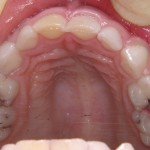
Atraumatic restorative treatment (ART) is a minimally invasive approach involving the removal of soft caries using hand instruments usually without local anaesthesia followed by the placement of an adhesive dental material. The ART approach is a good approach for delivering dental care in a field setting with limited resources.
The aim of this review was to assess the factors that affect the success rate of atraumatic restorative treatment (ART) restorations in children.
Methods
Searches were conducted in the PubMed, Medline and Web of Science databases. Clinical studies reporting outcomes of ART restorations placed in children and published in English were considered. Two reviewers assessed risk of bias using the Cochrane tools for randomised controlled trials (RCTs) and the Newcastle-Ottawa Scale for cohort studies. Success rates (success events/total events) were extracted or calculated from the individual studies by two reviewers independently. Factors considered as potential confounders or sources of variations of success rate of ART restorations were recorded. Pooled estimates for success rates were calculated with meta-regression and subgroup analysis to assess factors affecting success rates.
Results
- 47 studies from 19 countries reported in 67 papers were included.
- A total of 6959 children aged 2–19 received 11,223 ART restorations.
- 34 of the studies were RCTs, 29 were at high risk of bias in one or more domain with 5 being at unclear risk of bias.
- Estimated success rate (ESR) based on total sample at baseline is shown in the table below.
| No of studies | ESR (95%CI) | |
| 6 -months | 23 | 0.76 (0.69 – 0.83) |
| 12 -months | 40 | 0.71 (0.65 – 0.77) |
| 24 -months | 23 | 0.67 (0.56 – 0.78) |
| 36 -months | 11 | 0.57 (0.39 – 0.74) |
- Meta-regressions showed that operator was a significant factor associated with the success rates of ART.
- Dentition and type of restoration were significantly associated with the success rates.
- The success rate for single-surface restorations was significantly higher than multiple-surface restorations.
Conclusions
The authors concluded: –
… the ART approach can be used to manage cavitated caries lesions in children. Operator and type of restoration are significant factors influencing the success rate of ART restorations.
Comments
The authors have searched a number of databases although restricting the included studies to those published in English may have excluded some relevant studies. A majority of the included studies were RCTs however most of these (29) were assessed as being at high risk of bias for one or more domains in the Cochrane Risk of bias tool. The low quality of the included studies should be taken into consideration when assessing the findings. A 2017 Cochrane review (Dental Elf – 10th Jan 2018) included 15 RCTs finding low quality evidence suggesting that ART may have higher risk of failure that conventional restorations. Both the Cochrane review and this new review highlight problems with the quality of the available evidence on the success rates of ART so well conducted and reported studies of appropriate size and duration are still needed to clarify their effectiveness.
Links
Primary Paper
Jiang M, Fan Y, Li KY, Lo ECM, Chu CH, Wong MCM. Factors affecting success rate of atraumatic restorative treatment (ART) restorations in children: A systematic review and meta-analysis. J Dent. 2020 Nov 11;104:103526. doi: 10.1016/j.jdent.2020.103526. Epub ahead of print. PMID: 33188846.
Other references
Dental Elf – 10th Jan 2018
